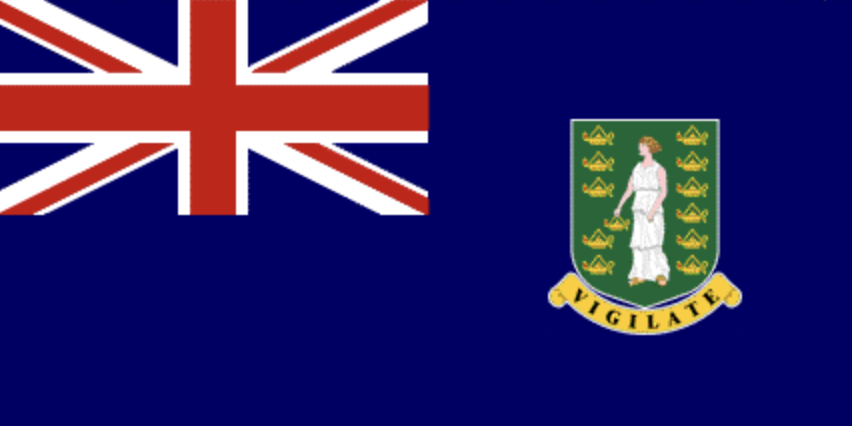
Pros and Cons of the BVI* Private Trust Company
A BVI Private Trust Company (PTC) is a specialized type of entity incorporated in the British Virgin Islands (BVI) to serve as a trustee for family or private trusts. This structure is commonly used by high-net-worth individuals or families seeking to manage and protect their wealth over multiple generations. A PTC offers a high degree of flexibility and control, allowing families to appoint their own directors—often family members or trusted advisors—who oversee the administration of the trust.
The BVI jurisdiction is recognized for its strong legal framework, which is designed to protect privacy and facilitate efficient trust management. A PTC can hold and manage various types of assets, including investments, properties, and shares in underlying entities, all while providing a streamlined governance model that can be tailored to the family’s specific needs and goals.
One of the key benefits of a BVI Private Trust Company is that it allows families to retain greater control over their trust’s administration compared to using a corporate trustee. Additionally, the BVI’s favorable tax regime and robust legal protections make it an attractive jurisdiction for establishing and managing trusts.
Pros of a BVI Private Trust Company
Control and Flexibility:
The PTC allows families to maintain control over the administration of their trust by appointing their own directors, who are typically family members or trusted advisors. This structure enables more personalized governance, which is often not available with corporate trustees.
Confidentiality:
The BVI offers strong privacy protections. The identities of the trust’s beneficiaries and the details of its assets are not publicly disclosed, ensuring confidentiality for the family members involved.
Asset Protection:
A PTC provides an additional layer of protection for family assets. The trust can be structured to shield assets from creditors, disputes, or even potential claims of divorce or bankruptcy, depending on the jurisdiction’s laws.
Estate and Succession Planning:
The PTC is an ideal vehicle for long-term wealth management and estate planning. It can ensure the seamless transfer of assets across generations, helping families preserve their wealth and legacy.
Tax Neutrality:
The BVI has a favorable tax regime, with no capital gains tax, inheritance tax, or wealth tax. This makes it an attractive jurisdiction for setting up trust structures that aim to minimize tax liabilities.
Professional Administration:
The PTC allows the family to appoint professional advisors, such as lawyers or accountants, to help manage and administer the trust effectively, while retaining ultimate control over the trust’s decision-making.
Tailored Governance:
Unlike corporate trustees, the PTC provides flexibility in governance, allowing the family to shape how decisions are made, such as by having a board of directors that is familiar with the family’s unique goals and values.
BVI’s Strong Legal Framework:
The BVI has a well-established and reputable legal framework for trusts, based on English common law. This provides confidence in the security and enforceability of trust arrangements.
Cons of a BVI Private Trust Company
Setup and Maintenance Costs:
Establishing and maintaining a PTC can be more expensive than using a corporate trustee. There are costs related to the incorporation of the PTC, legal fees, accounting, and ongoing administrative expenses, such as the need for local directors or a registered agent.
Administrative Complexity:
Managing a PTC requires a certain level of expertise and effort. Family members or directors involved must be well-versed in trust administration and legal requirements, which can be complex and time-consuming without the support of a professional trustee.
Potential for Conflict:
If family members or directors have differing views on how the trust should be managed, conflicts may arise. The family dynamics involved in governance can sometimes complicate decision-making or lead to disputes, especially if the family is large or has divergent interests.
Limited to Private Trusts:
A PTC is specifically designed for private trusts, meaning it cannot be used as a trustee for a public trust or other types of commercial ventures. This can limit its scope if the needs of the family change or if the trust expands in a way that requires broader governance.
Legal and Regulatory Compliance:
While the BVI has a flexible and attractive regulatory environment, the PTC must still comply with BVI trust laws, which can require ongoing legal oversight and documentation. Additionally, the jurisdiction has its own regulatory requirements, including anti-money laundering (AML) and Know Your Customer (KYC) rules, which must be adhered to.
Limited Capacity for Outside Involvement:
A PTC is typically used for family or closely-held trusts. As such, it may not be suitable for larger, more complex structures involving third-party beneficiaries or unrelated parties, as the governance structure may not support the diverse needs of larger groups.
Ongoing Regulatory Changes:
The global regulatory environment is evolving, with increasing scrutiny of tax havens and offshore structures. While the BVI is a well-respected jurisdiction, changes in international tax law or regulatory frameworks could impact the operation or costs associated with a PTC.
Limited to Wealthy Families:
Given the administrative complexity and cost, a BVI Private Trust Company is typically most suitable for high-net-worth families. Smaller families or individuals may find the structure too cumbersome or costly for their needs.
Conclusion
A BVI Private Trust Company offers significant advantages, particularly for wealthy families seeking to maintain control over their trust and assets, ensure privacy, and benefit from the BVI’s favorable legal and tax regime. However, the structure comes with higher setup and maintenance costs, administrative responsibilities, and potential governance challenges. As such, it is best suited for families with complex wealth management needs and the resources to manage the trust effectively.
*BVI Stands for British Virgin Islands
Disclaimer
The content provided in this article has been generated by article intelligence (AI) and is for informational purposely only. While the AI strives to offer accurate , up-to-date and helpful information, it may not fully reflect current legal standards, regulations or professional advice. This content is not intended to servve as legal advice or as a substitute to serve as legal advice or as a substitute for consultations with a qualified legal advisor.
By reading and using this article, you acknowledge that AI-generated content may contain inaccuracies, outdate information or oversimplifications. Users are encouraged to independently verify the information and seek legal advice before making any decisions based on the contents provided herein.
The creator, publisher and provider of this content disclaim any liability for any loss, damage or legal consequences that may arise from the reliance on the information contained in this article.
Please note that the AI-generated content does not establish an an attorney-client relationship and no legal rights or obligations are created by reading or using this article.


